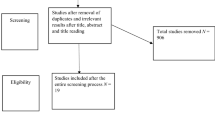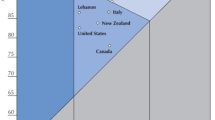Abstract
Since the year 2000, the triennial Programme for international Student Assessment (PISA) of the Organisation for Economic Co-operation and Development (OECD) has turned from mere benchmarking into a “backdoor agent” in education policy-making. The study was explicitly administered in order to increase focus and motivation for reform and for the improvement of secondary education (Anderson et al. 2010: 375). Accordingly, the first waves in 2000 and 2003 triggered education policy changes in a number of participating countries that either were unpleasantly surprised by their ranking or that utilized their PISA performance as a pretence for previously intended reforms (Breakspear 2012; Ertl2006; Egelund 2008; Knodel et al. 2010). In some countries, PISA was not the actual reason for education reform; plans for policy changes had already been developed — a response to increasingly globalized labour markets, growing importance of human capital, and budget shortages. In other countries, the PISA Study and (PISA-independent) education reform took place simultaneously, and policy changes were publicly framed post hoc as direct responses to PISA (Kiieme 2011), Either as a direct response to PISA or independently, many countries have changed their education policies during the first decade after PISA 2000.
Access this chapter
Tax calculation will be finalised at checkout
Purchases are for personal use only
Preview
Unable to display preview. Download preview PDF.
Similar content being viewed by others
References
Allmendinger. Jutta (1989) “Educational Systems and Labor Market Outcomes”. European Sociological Review, 5(3), 231–50.
Anderson, John O., Mci-Hung Chiu and Larry D. Yore (2010) “First Cycle of Pisa (2000–2006) — International Perspectives on Successes and Challenges: Research and Policy Directions”. International Journal of Science and Mathematics Education, 8(3), 373–88.
Ball, Stephen J. (2009) “‘Privatising Education, Privatising Education Policy, Privatising Educational Research: network Governance and the ‘Competition Stale’” Journal of Education Policy, 24(1), 83–99.
Becker, Rolf (2000) “Klassenìage und Bildlingsentscheidungen. Eine empirische Anwendung der Wert-Erwartungstbeorie”, Kölner Zeitschrift für Soziologie und Sozialpsychologie, 52(3), 450–74.
Boudon, Raymond (1974) Education, Opportunity, and Social Inequality: Changing Prospects in Western Society, New York: Wiley & Sons.
Breakspear, Simon (2012) The Policy Impact of PISA: An. Exploration of the Normative. Effects of International Benchmarking in School System Performance (ÜECÜ Education Working Paper No. 71).
Breen, Richard and John H. Goldthorpe (1997) “Explaining Educational Differentials: Towards a Formal Rational Action Theory”, Rationality and Society, 9(3), 275–306.
Brini, Steven G. (2006) Schools and societies, Stanford: Stanford University Press.
Drecbcn, Robert and Rebecca Barr (1988) ‘’Classroom Composition and the Design of Instruction”, Sociology of Education 61(3), 129–42.
Egelund, Niels (2008) “The value of international comparative studies of achievement — a Danish perspective”, Assessment in Education: Principles, Policy & Practice, 15(3), 245 51.
Erikson, Robert and Jan O. Jonsson (1996) “Introduction: Explaining Class Inequality in Education: Trie Swedish Test Case”, in Robert Erikson and Jan O. Jonsson, eds., Can Education Be Equalized? The Swedish Case in Comparative Perspective, Boulder: Westview, 1–63.
Ertì, Hubert (2006) “Educational Standards and the Changing Discourse on Education: The Reception and Consequences of the PISA Study in Germany”, Oxford Review of Education, 32(5), 619–34.
Esser, Hartmut (1999) Situationslogik und Handeln. Soziologie. Spezielle Grundlagen., Vol. 1, Frankfurt: Campus.
Hanushek, Eric A., Susanne Link and Ludger Wößmartn (2011) Does School Autonomy Make Sense Everywhere? Panel Estimates from PISA, Munich: Center for Economic Studies.
Hartong, Sigrid (2012) “Overcoming Resistance to Change: PISA, School Reform in Germany and the Example of Lower Saxony”, Journal of Education Policy, 27(6), 747 60.
Hattie, John A.C. (2002) “Classroom Composition and Peer Effects”, International Journal of Educational Research, 37(5), 449 81.
Jakobi, Anja P. and Janna Teltemann (2011) “Convergence in Education Policy? A Quantitative Analysis of Policy Change and Stability in OECD Countries”, Compare, 41(5), 579–95.
Klieme, Eckhard (2011) “Bildung unter un demokratisch em Druck? Anmerkungen zur Kritik der PISA-Studie”, in Stefan Auienanger, ed., Bildungin der Demokratie, Opladen: Budrich, 289–303.
Knödel, Philipp, Kerstin Martens, Daniel de Olano and Marie Popp (2010) Das PISA-Echo. Internationale Reaktionen auf die Bilduv.gsstud.ie, Frankfurt: Campus.
Lingard, Bob and Jennifer Ozga (2007) The Routîeägef’aimer reader in education policy and politics, London, New York: Routiedge.
Marsh,. Herbert W. (1987) “The Big-Fish-Little-Pond Effect on Academic Self-Concept”, journal of Educational Psychology, 79(3). 280–95.
Mons, Nathalie (2007) Les nouvelles politiques éducatives. La France fait-elle les bons choix?, Paris: Presses universitaires de France.
Monti”, Guillermo (2010) “Cross-national Differences in Educational Achievement Inequality”, Sociology? of Education, 84(1), 49–68.
OECD (2007) PISA 2006. Science Competencies for Tomorrow’s World. Volume 2 Data, Paris: OECD.
OECD (2009) PISA Data Analysis Manual, 2006 Edition, Paris: OECD.
OECD (2010a) Changes in student performance since 2000, Paris: OECD.
OECD (2010b) What Makes a School Successful? PISA 2009 Results Volume IV, Paris: OECD.
Park, Hyunjoon and Gary D. Sandefur (2010) “Educational Gaps Between Immigrant and Native Students in Europe: Trie Role of Grade”, injaap Dronkcrs, ed., Quality and Inequality of Education: Cross-National Perspectives. Assessing the Quality of Education and its Relationships With The Inequality in European and Other Modern Societies, Berlin: Springer, 113–36.
Phillips, David and Kimberly Ochs (2003) “Processes of Policy Borrowing in Education: Some Explanatory and Analytical Devices”, Comparative Education, 39(4), 451 61.
Rasch, Georg (1960) Probabilistic. Models for Some Intelligence and Attainment Tests, Copenhagen: Danmarks pædagogiske Institut.
Robert, Peter (2010) “Social Origin, School Choice, and Student Performance”, Educational Research and Evaluation, 16(2), 107–30.
Rumberger, Russell W. and Gregory J. Palardy (2005) “Does Segregaiion Still Matter? The Impact of Student Composition on Academic Achievement in High School”, Teachers College, 107(9), 1999–2045.
Sacerdote, Bruce (2011) “Peer Effects in Education: How Might They Work, How Big Are They and How Much Do We Know Thus Far?”, in Eric A. Hanushek, Stephen Machin and Ludger Wößmann, eds., Handbook of the Economics of Education, Amsterdam: Elsevier, 249–77.
Sahlberg, Pasi (2006) “Education Reform for Raising Economic Competitiveness”, Journal of Educational Change, 7(4), 259–87.
van de Werfhorsi, Herman G. and Jonathan J. B. Mijs (2010) “Achievement Inequality and the Institutional Structure of Educational Systems: A Comparative Perspective”, Annual Review Sociology, 36(1), 407–28.
Wößmann, Ludger, Gabriela Schütz, Elke Lüdemann and Martin R. West (2012) “School Accountability, Autonomy Choice, and the Equality of Educational Opportunities”, in Michael Windzio, ed., Integration and Inequality in Educational Institutions, Dodrecht: Springer, 123—52.
Editor information
Editors and Affiliations
Copyright information
© 2014 Janna Teltemann
About this chapter
Cite this chapter
Teltemann, J. (2014). Achievement vs. Equality — What Determines PISA Performance?. In: Martens, K., Knodel, P., Windzio, M. (eds) Internationalization of Education Policy. Transformations of the State. Palgrave Macmillan, London. https://doi.org/10.1057/9781137401694_2
Download citation
DOI: https://doi.org/10.1057/9781137401694_2
Publisher Name: Palgrave Macmillan, London
Print ISBN: 978-1-349-48648-9
Online ISBN: 978-1-137-40169-4
eBook Packages: Palgrave Political Science CollectionPolitical Science and International Studies (R0)




